Falls Church City Council Member Justine Underhill’s Savvy Approach to ‘Meeting the People Where They Live’
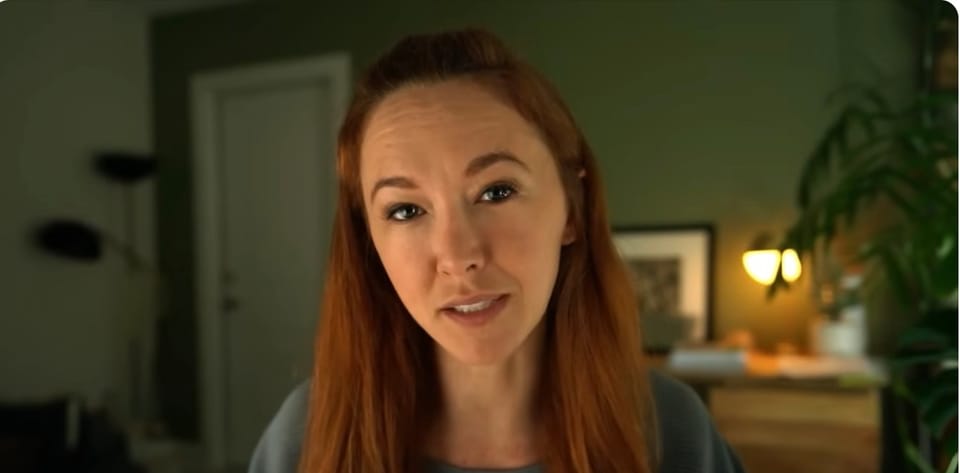
A new dynamism has come to the City Council.
On January 1, 2024, Justine Underhill – Falls Church Housing Commissioner, former on-air reporter for Yahoo Finance in New York City, community advocate, investigative journalist, and professional video documentarian – began her first term on the Falls Church City Council.
Underhill’s arrival has ushered in a savvy, energetic new approach to City politics combining data-driven policy approaches, telegenic charisma, and authentic concern for “meeting the people where they live” to create a better community.
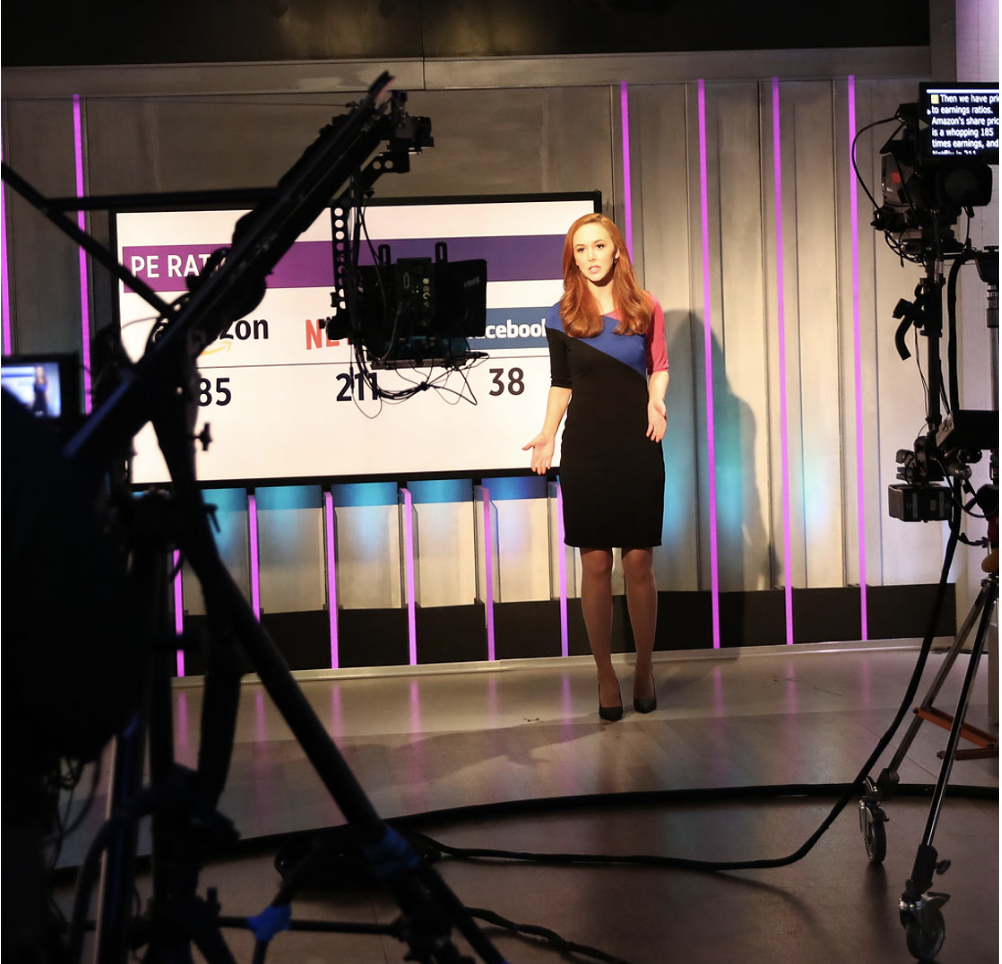
A Georgetown University graduate with degrees in Mathematics, Economics and Theater & Performing Arts, Underhill has found creative ways to incorporate her learning across academia’s broadest spectrum into her media and political career. Her Waldorf School high-school education also encouraged her from a young age to explore and challenge conventional thinking.
Underhill hosted Real Vision’s series “Discoveries” that “explored the unexpected side of technology, finance and science.” Throughout her journalism and media career, she has demonstrated a strong and consistent commitment to informing the public about all types of issues of concern.
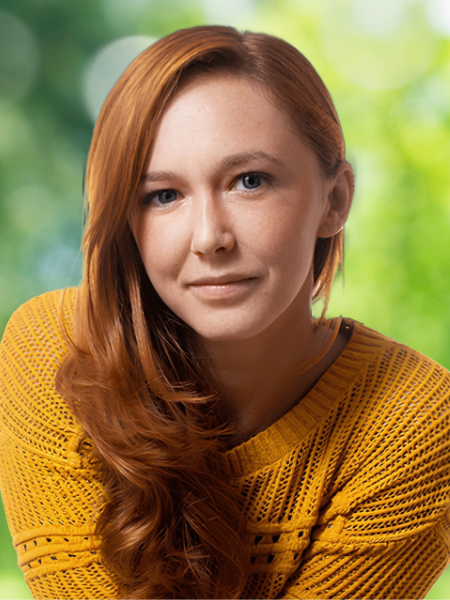
Before moving to the City of Falls Church, she lived in the Dupont Circle neighborhood of D.C., where she served as one of the District’s youngest Advisory Neighborhood Commissioners. Her service on the FCC Housing Commission broadened her concern over affordable housing and what makes for healthy communities.
Underhill’s video on YouTube “Who Owns the Streets? How Cars Took Over Our Shared Spaces” has over 27,000 views.
“I loved the natural beauty of this region,” Underhill said of her decision to move to Falls Church. “After working in New York City and traveling for several years as a filmmaker and writer, my partner and I moved to Falls Church for the city's walkability and ease of access to the W&OD trail.” Upon arrival to The Little City, Underhill became an organizer of Falls Church Forward and is active in Bike Falls Church. Her campaign for the Falls Church City Council was endorsed by the Sierra Club.
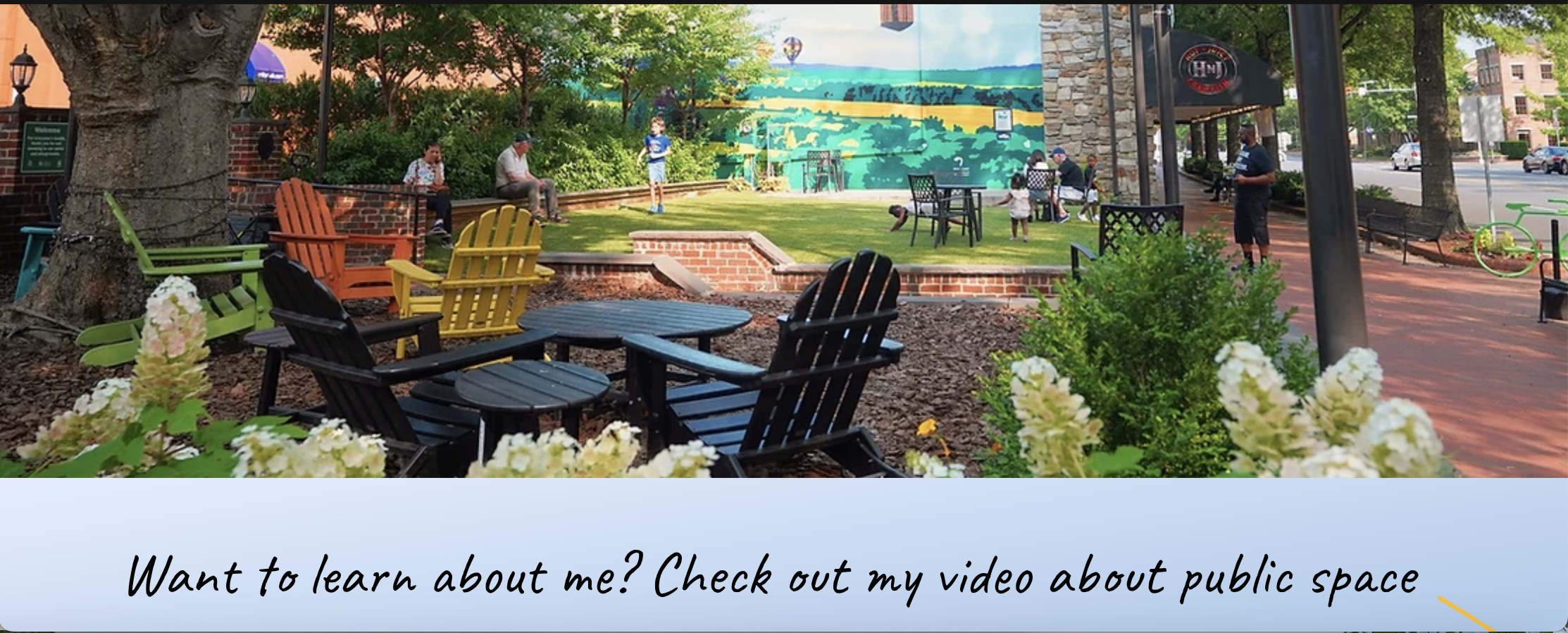
Oh, yeah – and she’s also “a trained aerialist, with specialties in silks and trapeze.” (Justineunderhill.org.)
I first met and interviewed Justine Underhill when I was reporting on Mayor Hardi’s public outreach event at 455 Tinner HIll. In our 5-minute chat before the mayor spoke, Underhill humbly displayed impressive knowledge of the City’s key issues, a kind and bubbly personality, and a fervent desire to convey her love of community and civic engagement to City residents.
After we spoke at 455 Tinner Hill, I contacted Underhill to ask some follow-up questions. While she was away on a vacation trip to the mountains, she emailed back her responses.
The first interview has been edited for length and clarity and the second is in full.
Interview with Justine Underhill, City Council member, 455 Tinner Hill, July 24:
FCI: What brings you out for this event?
Justine Underhill: I’ve been excited to reach out to the community more, so I’ve been going door-to-door to a lot of single-family homes to get people engaged whether it be for bike plans or for a new development or for the greening of Lincoln [Avenue].
So, I’ve wanted to make inroads with apartment buildings too because it’s a little bit lopsided how I’ve been doing my outreach recently. And to make sure that people in the City know what’s going on and understand what the new development is about and what’s coming. And also to get people engaged at a deeper level in local affairs.
FCI: So it sounds like your goals for community outreach sort of dovetail with the mayor’s?
JU: Yes, absolutely. That’s where, when we were talking with some people here today, they, unfortunately, didn’t know anything about the Falls Church community and what was going on. So, it’s sort of nice to hold events like this so that people see maybe new ways to get connected in the community.
FCI: So it’s about engagement and you and the mayor are sort of on the same track? Engaging the public and going out to where they are.
JU: Yes. One of the things I feel really strongly about is making sure that people are aware of what’s going on in the City. And in some ways you’re doing that work. You can do it door-by-door, apartment building by apartment building, but having any outreach is just so important. Going to where the people are.
I used to be on the Housing Commission and that’s something we talked about. Let’s go to where the people are. Let’s hear about things that are going on in the community because if you’re just sitting in City Hall, you’ll never know about all the things going on and all the different nooks and crannies of Falls Church.
FCI: And people are fortunate to have the people in City government thinking that way.
JU: It takes time, though. There’s a lot of effort and there’s a lot of planning that goes into those things. Even going door-to-door takes so much. I personally spent 15 hours going door-to-door for the Greening of Lincoln Project, so that people understand that.
Justine Underhill’s emailed responses to The Falls Church Independent:
FCI: Please tell us about your personal/professional background and the story of how you got involved in the City of Falls Church's politics and the City Council.
JU: When I graduated from Georgetown University with degrees in Economics, Mathematics, and Theater, I often found myself fielding the same question: 'What are you going to do with Economics and Theater?' As it turned out, I ended up blending these seemingly disparate fields into an amazing career as a journalist and 'economic storyteller.' My journey led me to work as an on-air reporter and host for Yahoo Finance, and later as a documentary filmmaker. Through these roles, I had the incredible opportunity to dive deep into the stories that shape our world, particularly those about technology, finance, and science.
By the time I moved to Falls Church, I had gained a bit of knowledge about urban design — just enough to feel frustrated during a walking tour of the Park Avenue redesign! That experience, coupled with my background in journalism, inspired me to create a video with all the thoughts I hadn't been able to articulate during the tour (check it out!) It was a small but significant step that sparked my involvement in local issues.
Around the same time, I became more deeply involved in the community by joining various groups like the Housing Commission, Bike Falls Church, Falls Church Forward, and FCCAN. Through these experiences, I came to realize that Falls Church is a unique place — small enough that with a bit of effort and collaboration, it’s entirely possible to make meaningful changes. This realization ultimately led me to take a more active role in the City’s politics and, eventually, to my position on City Council.
FCI: On the City Council, what are your biggest priorities and what would you like people to know more about?
JU: On City Council, my top priorities include creating a more bikeable, walkable, and transit-friendly Falls Church. I’m deeply committed to addressing housing costs, ensuring efficient and well-run government operations, fostering a robust tax base, supporting community businesses, and promoting environmental sustainability.
Over the past two years, I’ve immersed myself in dozens of books on planning and urban design. My passion for these topics is also shaped by my experiences over the past two decades, living in and visiting over a dozen different places. One thing has become clear to me: the design of our community — our streetscapes, buildings, and parks — profoundly impacts our daily lives.
I believe we can design Falls Church in a way that encourages walking and biking, which not only encourages neighborhood interactions but also combats loneliness and increases overall happiness. Imagine a city filled with pocket parks, outdoor dining options, and tree-shaded public spaces — these elements can strengthen our sense of community and improve public safety. Ensuring that everyone, including children and seniors, can move around the city safely on foot, by bike, scooter or golf cart, in turn, fosters independence while reducing congestion and pollution.
The downstream effects of thoughtful urban design are truly profound, and there are plenty of places doing it right with evidence-based approaches to guide us. However, there’s a lot of dogma out there. For example, I recently received a letter from a resident suggesting that the only way to fix traffic issues is to widen roads and create more space for driving. But, in reality, that’s the exact opposite of what evidence shows will ease traffic issues.
Many people are surprised to learn that traffic in Falls Church has generally decreased since 2007, according to VDOT data. As our city has grown, we’ve added more shops and restaurants, making it more pleasant to walk around. It's now possible and enjoyable to do errands by foot or bike, rather than driving from shop to shop.
If you’re interested in cutting through the noise and learning about evidence-backed urban design, I highly recommend reading Walkable City Rules. It’s a fantastic resource.
FCI: What's it like serving on the City Council? (Please describe the biggest challenges, best moments, any good anecdotes, etc.) Would you recommend it to others?
JU: Serving on City Council has been an incredibly rewarding experience, especially for someone like me who loves to learn — that’s actually why I got into journalism in the first place. While I initially joined with a focus on my key priorities like bikeability, walkability, and efficient government, I’ve ended up learning about everything from Commercial Drivers Licenses to leaf collection, tree planting standards, stormwater nutrient credits, MUTCD signage, ranked choice voting, and so much more.
It’s a lot to take in at first, and the learning curve can be steep. But there’s something valuable about coming in with fresh eyes. I’m not yet used to the way things have always been done, so I find it easier to question long-standing practices and suggest different approaches where needed.
For instance, it's well established that narrower travel lanes help slow down speeding cars (imagine driving down a tiny alleyway versus driving on the highway). When driving feels easy and comfortable, your brain tells you it's fine to drive faster and people tend to speed. Just look at East Broad Street, where it actually “feels wrong” to drive the speed limit. For our neighborhood roads and collectors, NACTO recommends a lane width of 10 feet, but I discovered that we’ve been designing our roads to 11 feet or more because that’s what snow plows require. Why are we designing our roads around snow plows (for the 3-5 days a year it snows), instead of finding snow plows to fit our roads? For me this is just one of the ways we could be designing things better for people instead of cars. Perhaps my snowplow-related questions have annoyed some of those on city staff, but this is a good example of why it’s important to challenge the status quo.
Another aspect of serving on the Council that I’ve found incredibly fulfilling is connecting with residents directly. Over the past six months, I’ve spent a lot of time door-knocking. Whenever a project comes up and I have the time, I make an effort to inform neighbors personally. For example, during discussions about the Quinn project, some people outside Virginia Village made assumptions about what the residents there wanted. Instead of relying on second-hand opinions, I went door-to-door in Virginia Village to hear directly from the residents. I learned a lot about their needs, issues, and priorities — information that didn’t match up with what others claimed they cared about. I also discovered that renters aren’t notified about projects, only landlords, which is a process I’d like to see changed.
I’ve also gone door-to-door for projects like The Greening of Lincoln and proposals for North West and South West Street. Things just tend to go a lot smoother when we involve the community early on and build relationships.
Would I recommend serving on the City Council? Absolutely — if you’re passionate about learning and ready to commit the time, it’s an incredibly fulfilling role. I’d also recommend reading Happy City to get a better understanding of the nuances of city planning and urban design. Serving on the Council is a unique opportunity to make a real difference in your community, and it’s been an experience I’ve truly cherished.
FCI: Anything else you'd like to tell our readers?
I’m excited to share that I’m working with a team of people to launch a welcoming campaign — a program designed to foster community engagement and strengthen communication across our city. Inspired partly by Pete Davis’ film and Jason Roberts with Better Block, we're working to set up a neighborhood ambassadors program that could serve a variety of important purposes.
Ideally we'd find someone in every neighborhood (or on every building floor!) willing to serve as a point person to welcome new people, and eventually organize community events (like play streets or block parties) so that neighbors can get to know one another.
Eventually we'd like to create a community of community ambassadors who regularly gather to share ideas about what works (and what doesn't) when engaging neighbors.
In communities where neighbors are more connected, we see tangible benefits in public health, safety, and overall happiness. People feel a stronger sense of belonging, which translates to higher life satisfaction. That’s something I believe we can cultivate right here in Falls Church.
Another purpose of the program would be to help filter information up and down — bringing concerns from residents (like a damaged sidewalk) to the city’s attention, and also helping to engage neighbors in city plans (like the Bike Plan or ADUs). This would lead to city initiatives that are more informed by citizen input, as well as a community that’s more aware of and involved in what’s happening locally.
But we need community ambassadors to help make this vision a reality. If you’re passionate about building a stronger, more connected community, please join us!
On the Falls Church City Council, Justine Underhill currently serves on the following:
City Boards and Commissions
- Architectural Advisory Board (AAB) (Liaison)
- Arts and Humanities Council (Liaison)
- Planning Commission (Liaison)
- Retirement Board (Liaison)
City Council Committees
Regional Boards and Commissions
By Christopher Jones

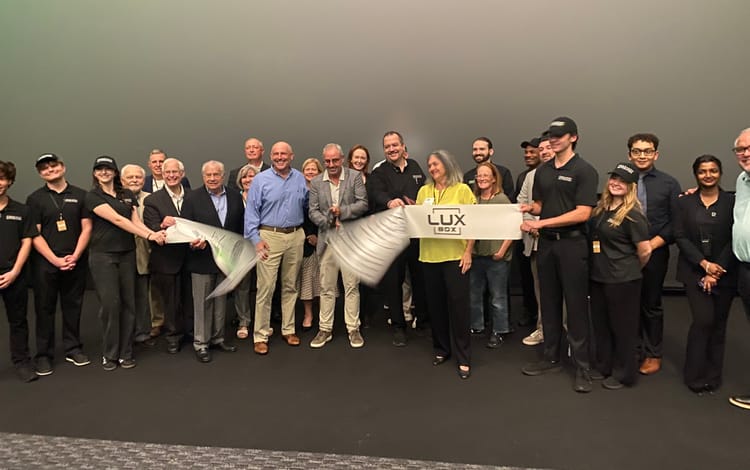
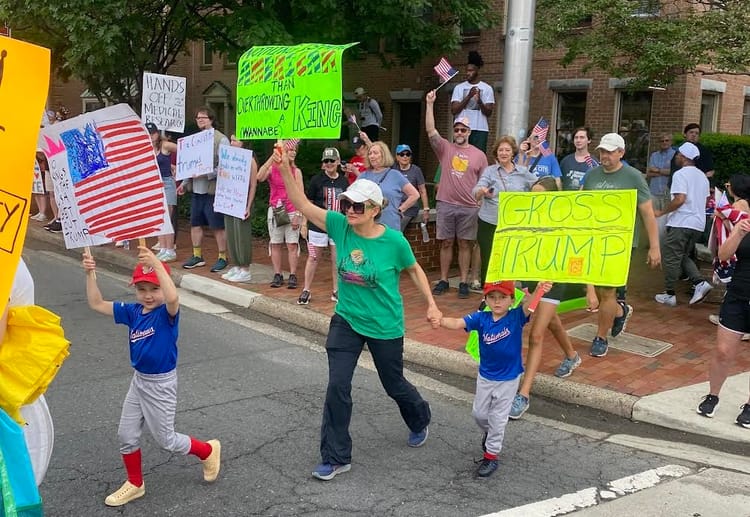
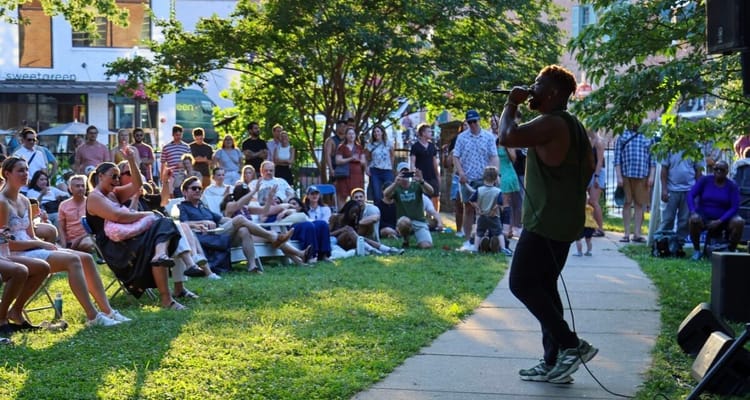
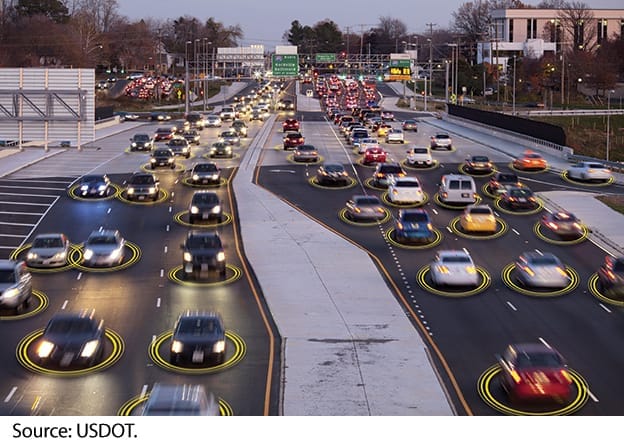
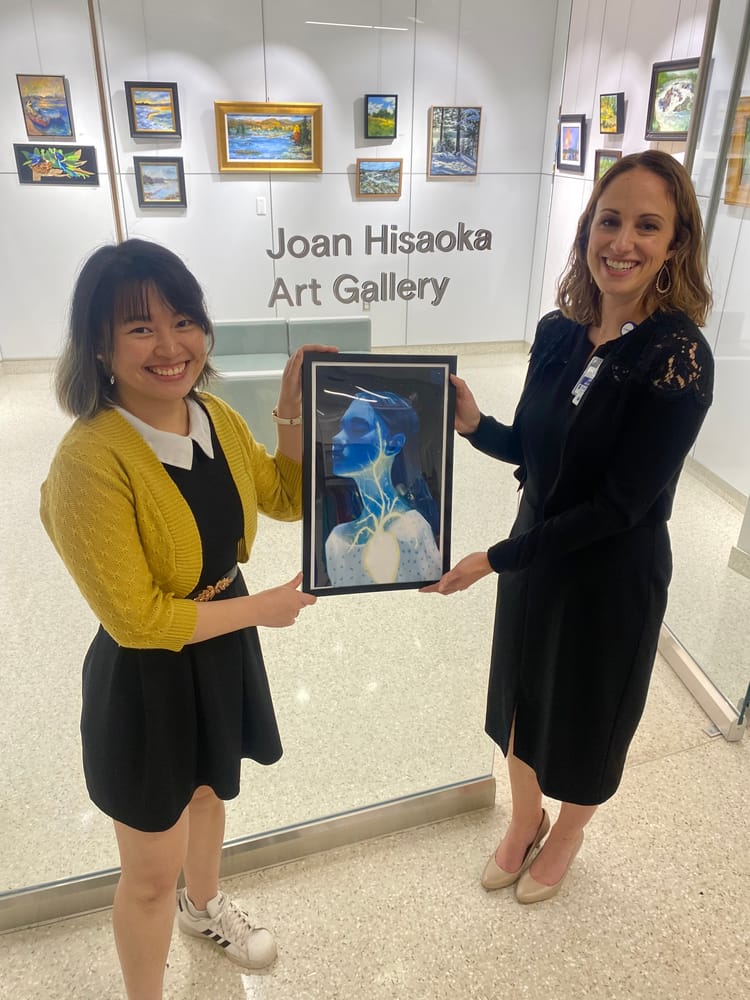
Member discussion